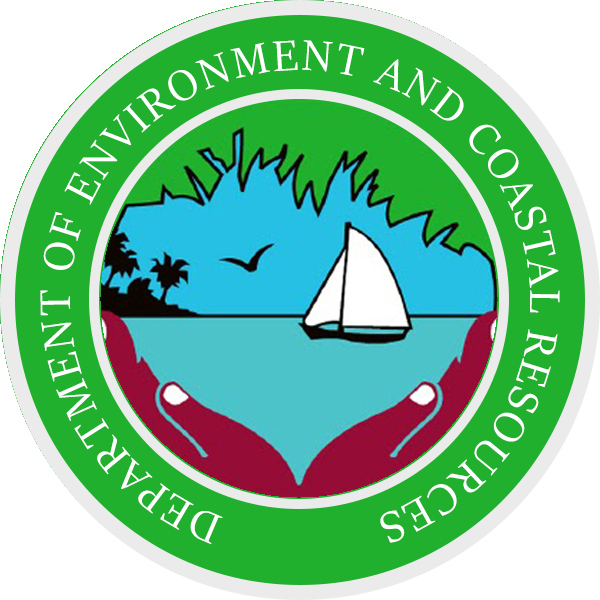
in nursery North Caicos
(Photograph courtesy of B Naqqi Manco)
The Caicos Pine Recovery Project is a species survival programme for the national Tree of the Turks & Caicos Islands, the Caribbean pine Pinus caribaea variety bahamensis. The introduction of an exotic invasive pine pest insect, the pine tortoise scale Toumeyella parvicornis, from North America has caused a devastating effect on the pine yard habitat. The Caicos pine is the foundation species of the pine yard (also known as pine rockland) habitat, a globally imperilled habitat on which a number of other plants, birds, reptiles, and insects depend. The pine yard is a fire-dependent ecosystem, which benefits from low-intensity lightning-ignited fires during the wet season. This habitat is found only on low-lying areas of North Caicos, Middle Caicos, and Pine Cay.
It is estimated that between 2000-2010, 95% of adult trees in the Caicos pine yards were killed by the insect. Salt intrusion from 2008 hurricane sea surges and subsequent escaped agricultural fires during the dry-season have also been detrimental, as has the introduction of yet another foreign plant pest, the Mediterranean black aphid.
Major activities of the project include:
Ex-situ conservation:
- Establishment of a Caicos pine nursery in which healthy seedlings are grown;
- Seed banking of Caicos pine seeds with RBG Kew’s Millennium Seed Bank to ensure long-term safeguarding of seeds;
- Safeguarding of live seedlings at the quarantine facilities of the Royal Botanic Gardens, Kew in UK;
- Establishment of a Caicos pine seed farm on the Turks & Caicos Government Farm.
In-situ conservation:
- Establishment of permanent monitoring plots to research effects of scale insect and treatments over time;
- Controlled burning of the pine yard to assist pine in growth, prevent dry-season wildfires, and combat scale insect infestation;
- Research of insect pests and their natural predators;
- Research of ectomycorrhial fungal affiliations with pine and other pine yard species;
- Research of trees’ stress levels and water absorption;
- Research of Bahama-variety Caribbean pine’s genetic phylogeny through the Lucayan Archipelago;
- Establishment of recovery plots where nursery-grown pine saplings are planted out in former pine habitat.
DEMA has partnered with the Royal Botanic Gardens, Kew’s United Kingdom Overseas Territories Programme team to safeguard the future of the Caicos pine through the activities of the project. International partnerships also exist with the US Forest Service, The Nature Conservancy, Bahamas National Trust, Bahamas Forestry, Fairchild Tropical Botanic Gardens, Miami-Dade County Parks Department, Everglades National Park, and the United Kingdom Food & Environment Research Agency. Local project partners include The Meridian Club at Pine Cay, TCI Department of Agriculture, Environmental Health Department, Civil Aviation Authority, Fire & Rescue, and the Turks & Caicos National Trust.
Links:
